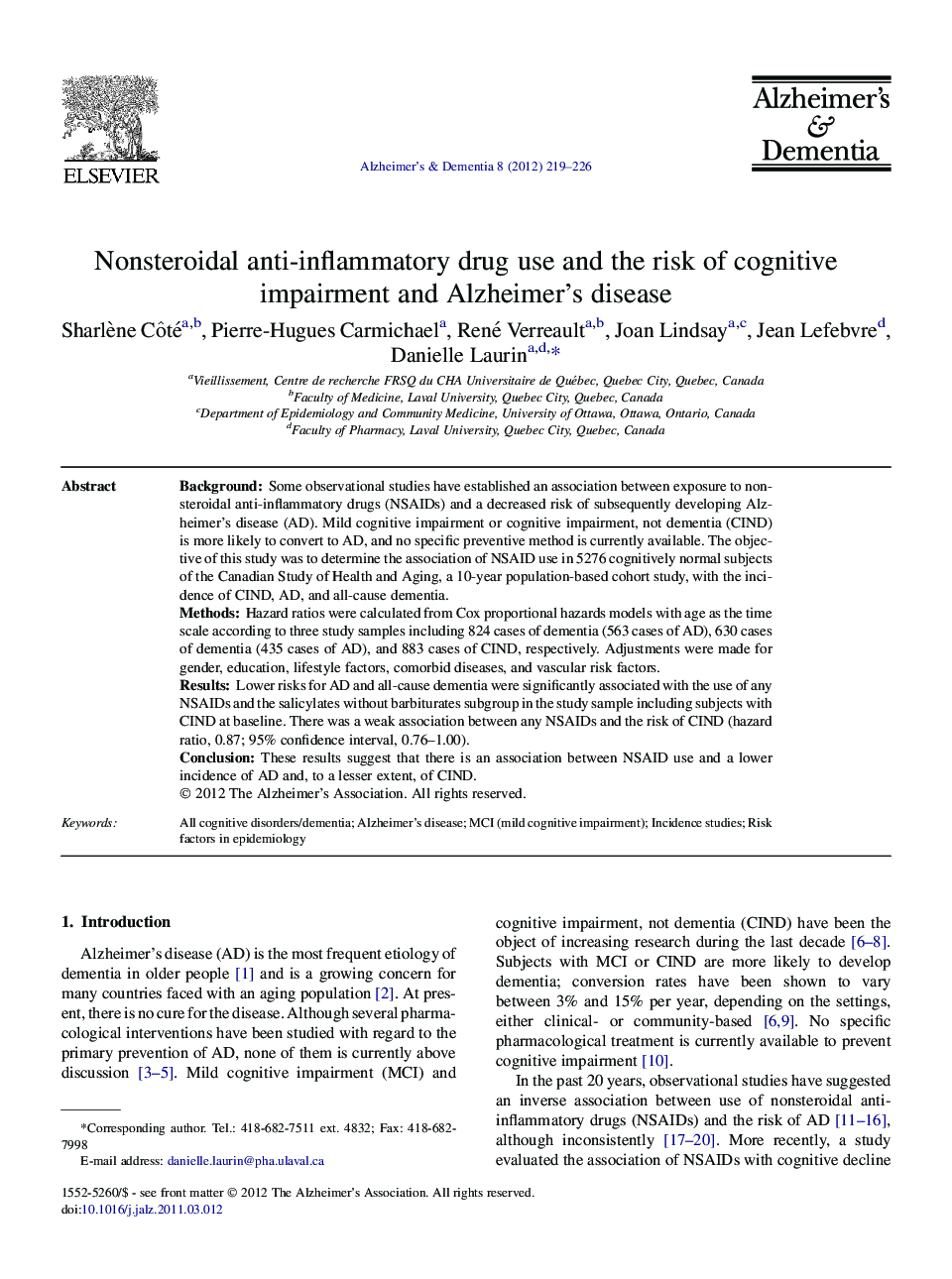| Article ID | Journal | Published Year | Pages | File Type |
|---|---|---|---|---|
| 5624988 | Alzheimer's & Dementia | 2012 | 8 Pages |
BackgroundSome observational studies have established an association between exposure to nonsteroidal anti-inflammatory drugs (NSAIDs) and a decreased risk of subsequently developing Alzheimer's disease (AD). Mild cognitive impairment or cognitive impairment, not dementia (CIND) is more likely to convert to AD, and no specific preventive method is currently available. The objective of this study was to determine the association of NSAID use in 5276 cognitively normal subjects of the Canadian Study of Health and Aging, a 10-year population-based cohort study, with the incidence of CIND, AD, and all-cause dementia.MethodsHazard ratios were calculated from Cox proportional hazards models with age as the time scale according to three study samples including 824 cases of dementia (563 cases of AD), 630 cases of dementia (435 cases of AD), and 883 cases of CIND, respectively. Adjustments were made for gender, education, lifestyle factors, comorbid diseases, and vascular risk factors.ResultsLower risks for AD and all-cause dementia were significantly associated with the use of any NSAIDs and the salicylates without barbiturates subgroup in the study sample including subjects with CIND at baseline. There was a weak association between any NSAIDs and the risk of CIND (hazard ratio, 0.87; 95% confidence interval, 0.76-1.00).ConclusionThese results suggest that there is an association between NSAID use and a lower incidence of AD and, to a lesser extent, of CIND.
